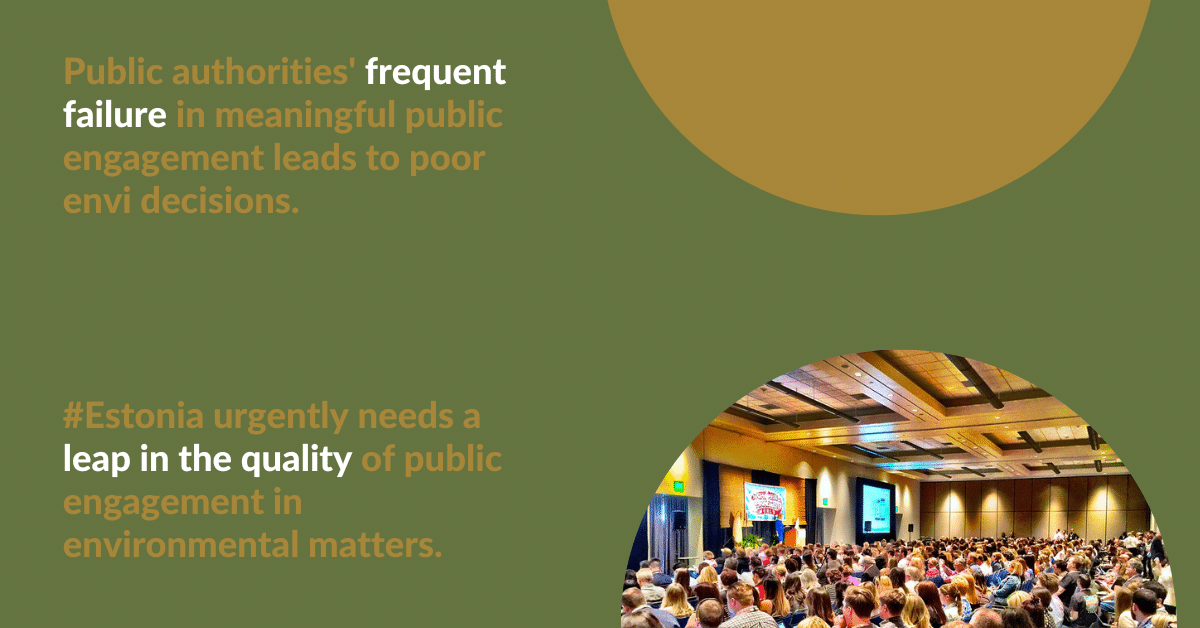Estonian public authorities fail to consult interest groups in the early stages of developing drafts. A better public engagement would lead to better environmental decisions and it is important that the NECP revision ensures a proper and meaningful public participation.
– Public engagement is seemingly good but rarely leads to substantial changes.
– In most cases, the most important aspects have already been decided in drafts before the first public consultations.
– Ministries disproportionately involve organizations representing private interests over NGOs.
Estonian governmental institutions seemingly follow the Good Practice of Involvement and practice public engagement better than before. However, public engagement is often done as part of a routine and rarely leads to meaningful changes.
Article 6 of the Aarhus Convention stipulates the right of everyone to participate in environmental decisions when all options are still open. In 2019, the Estonian NECP was submitted for public consultations in a very late phase, although environmental organizations had repeatedly asked the relevant ministries about the preparation of the NECP. Many important details were already decided, and interest groups were given less than two weeks to give feedback on the final NECP draft.
The level of engagement varies a lot – on some environmental topics, public stakeholders are included during most of the process, whereas on other topics, environmental NGOs can only give feedback to drafts where the most important and substantive aspects have already been decided. In the preparation of the National Forestry Development Plan, stakeholders were actively involved in the first phases of the preparation, only to find that their input was largely discarded in the later phase.
There is also a trend of disproportionately involving organizations representing private interests over NGOs in public consultations. Ministries must balance the strong representation of private interests in politics with more substantial involvement of NGOs.

